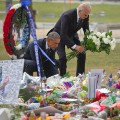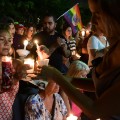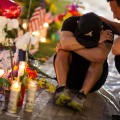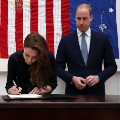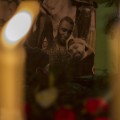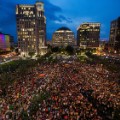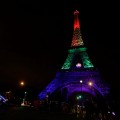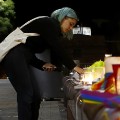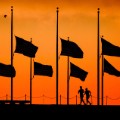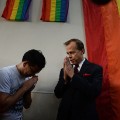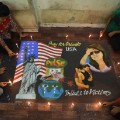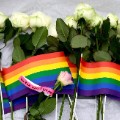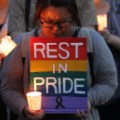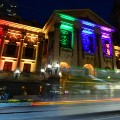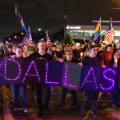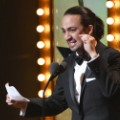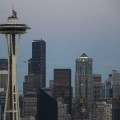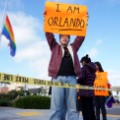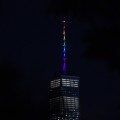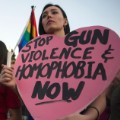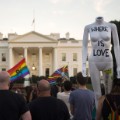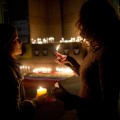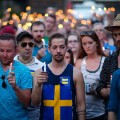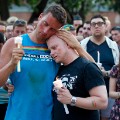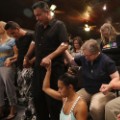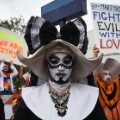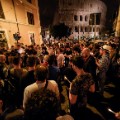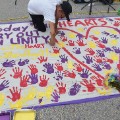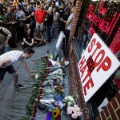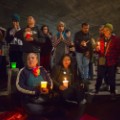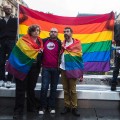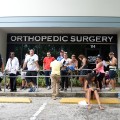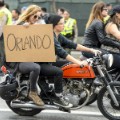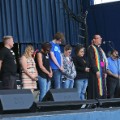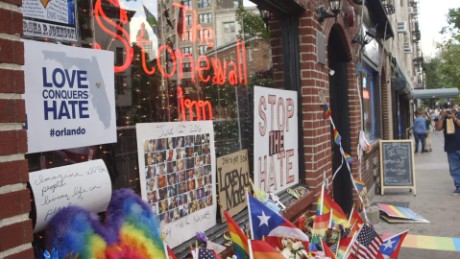Story highlights
- Many LGBTQ groups are calling for "more stringent checks to keep guns out of dangerous hands"
- Some doubt when gun laws will move activists the way marriage equality or HIV/AIDS did
(CNN)The National Rifle Association, often thought of as a powerful, unbeatable special interest group, may have finally met its match.
After the attack this month at a gay nightclub in Orlando -- the deadliest modern mass shooting in the United States -- dozens of LGBTQ groups joined with other organizations in calling for "more stringent checks to keep guns out of dangerous hands."
These groups have quite a good track record: They've fought cohesively and successfully for the right for same-sex couples to marry and for more funding and support for HIV and AIDS research and treatment.
"There's a sense that our community is one that people don't want to mess with because we know how to organize politically and we don't take no for an answer," said Marc Solomon, a political strategist and former national campaign director of the group Freedom to Marry.
The fight for tighter gun control laws has been an uphill battle, as evidenced by the sit-in at the House and the vote in the Senate against measures intended to strengthen background checks and prevent suspected terrorists from obtaining weapons.
Heather Thompson, an expert on the history of U.S. social movements, said she thinks it will make a difference if LGBTQ groups become galvanized on gun issues.
"It's one of the country's most successful social movements of the 20th century," said Thompson, a professor at the University of Michigan.. "By deciding this is going to be their next political issue, an incredible amount of resources, not just financial but human capital, will be going into it."
She said that for this reason, she thinks history will remember the Orlando shootings as a watershed event in the battle over gun rights.
"I think this is a new moment, and I don't say that in a Pollyanna-ish way," Thompson said.
'Armed queers don't get bashed'
Gregory Angelo, president of the Log Cabin Republicans, a gay conservative group, disagrees.
"I don't know that this is going to be any grand watershed moment," he said. "Rather than marriage equality being a case study in how to achieve the entire litany of progressive ends, it might well bear out in history to have been a one-off."
He also pointed out that while members of the LGBTQ community unilaterally supported marriage equality and joined together to fight for it, the community has a wide variety of views on gun control.
For example, a group called the Pink Pistols states on its website that "everyone has the individual right to keep and bear arms as protected by the Second Amendment."
"We teach queers to shoot," the group writes on its website. "Armed queers don't get bashed."
A spokeswoman for the NRA pointed to a USA Today article that says membership in the Pink Pistols has "skyrocketed" since the Orlando shooting.
"We have received an out pouring from people in the LBGT community," Jennifer Baker, the NRA spokeswoman, wrote in an email to CNN. "They understand that in order to protect themselves from the threat of terrorism in the face of government failure they need to arm themselves."
Fighting out of 'necessity'
But others point to the large number of LGBTQ groups that signed the document calling for more stringent gun control laws and to the community's track record on fighting for social change.
"The notion of people dying is something that tragically is not new to our community," said Solomon, principal and national director of Civitas Public Affairs Group, citing hate crimes and the AIDS epidemic.
"Our community, through necessity, has had to organize and fight."
As part of that fight, the community has established symbols around which people rally, such as the AIDS Memorial Quilt, as well as protesting techniques and memorable slogans, such as "Silence = Death" and "We're here, we're queer, and we're not going shopping."
After the massacre this month, Joshuah Thurbee, an educator in Philadelphia, tweeted a rainbow-colored to-do list for the community that he called the "Gay Agenda." He drew a line through through one task, "Legalize gay marriage," and added one at the bottom, "Take down the NRA." His image went viral.
"I hope it made people chuckle and say 'we should organize and get things done,' " Thurbee said. "For the largest mass shooting to be targeted against our community, it does feel very personal. It does feel super personal."
The community has also developed an "architecture of support," such as gay newspapers, websites and community centers, said James Downs, author of the book "Stand by Me: The Forgotten History of Gay Liberation."
"After the Orlando shooting, people in the gay community automatically knew where to go to hold vigils: In New York, they went to the Stonewall Inn. In cities all over, they went to the 'gayborhoods,' " said Downs, an associate professor of history at Connecticut College.
He said other communities might not have that built-in structure and cohesion that allows for people to automatically know where to go after a tragic event.
"After Sandy Hook happened, you could be a mother in Minnesota who saw what happened in Connecticut and want to do something, but where would you go?" he asked.
Shannon Watts, founder of Moms Demand Action, the grass-roots arm of Everytown for Gun Safety, said her group is well-organized, but it welcomes the help from LGBTQ groups. She noted that for years, her group has modeled its political strategy on those used to gain marriage equality.
She thinks LGBTQ groups will make a difference.
"If we unite and join forces, we will be unstoppable," she said.


































